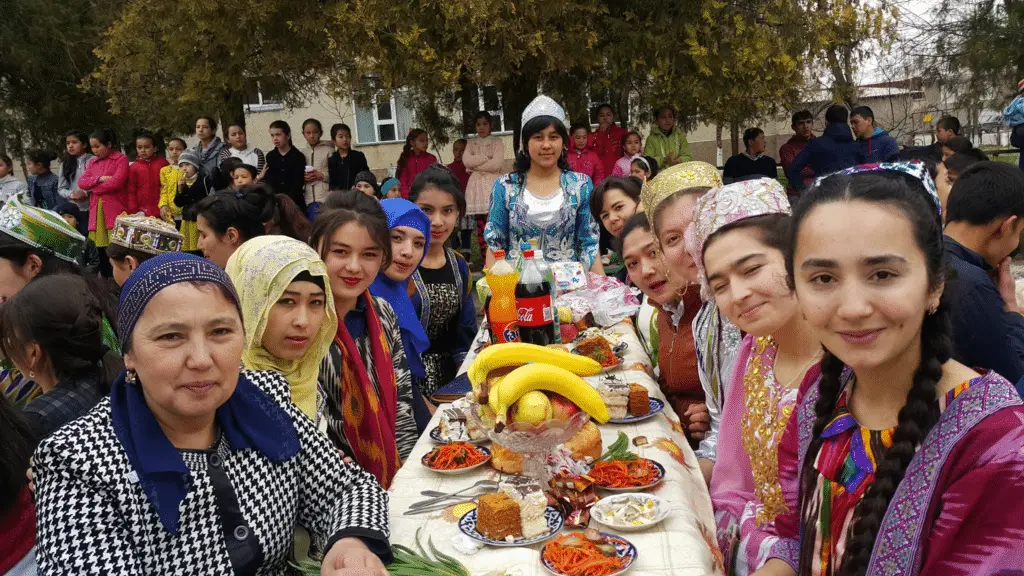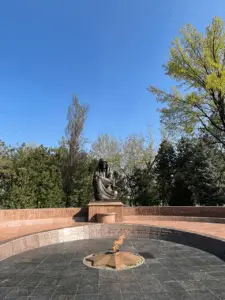Most of Uzbekistan’s holidays are recognizable from the old Soviet calendar, although they have been moved, refocused, and/or renamed to now celebrate Uzbekistan’s independent, post-1991 history and culture rather than that of the USSR. The major exceptions to this are two major Islamic holidays and the ancient Persian New Year celebrations that have now been raised to the level of public holidays. Below, read about the history and traditions of Uzbek holidays as well as their dates and days off.
Days Off
Long Weekends and Extra Days Off by Semester in 2025
| Spring | Summer | Fall | Winter |
| March 8, 21, 27-28 May 5-7, 9 |
June 16 | September 1 October 1 |
December 8, 31 January 1, 2, 3 |
New Year’s Eve and New Year’s Day
in Uzbek: Yangi Yil Bayrami
December 31, 2024 – January 3, 2025
Public holiday
(days off: December 31, 2024 – January 3, 2025)
The first of January is one of the biggest holidays in Uzbekistan, celebrating the beginning of the new year. This time is seen as a chance for new beginnings; people usually set goals and analyze where they are in their lives so far.
From mid-December, people attend many celebrations held among co-workers, university students, and friends, with festive meals, music, and dances. The 31 December to 1 January, however, is considered a family holiday and is traditionally celebrated with family members. Gifts are often exchanged, and Qorbobo arrives on this day to give gifts to children, accompanied by his helper, Qorqiz. “Qorbobo” translates as “Snow Grandfather” while “Qorqiz” means “Snow Girl.” The figures were adopted from Russian mythology, but interestingly Qorbobo always wears red, while the Russian version is nearly always in blue. Qorbobo is also the Uzbek word for snowman.

There is a very small but quite impassioned movement in Uzbekistan to abandon New Year. The holiday was introduced to Uzbekistan after Russia annexed the territory comprising present-day Uzbekistan and only became an official holiday for most Uzbeks in the 1940s, when the Soviets introduced it to the local calendar as a public holiday and day off. The movement gained some momentum after Uzbekistan declared independence from the USSR, arguing that the holiday is a foreign imposition and even “un-Uzbek” and “un-Islamic.” It also seems illogical since the Uzbeks have, for millennia, celebrated a spring New Year called Navruz (see below). In 2012, state authorities attempted to curtail New Year celebrations, but eventually relented.
Today, public opinion seems solidly in favor of celebrating both New Year traditions. State figures and Islamic leaders have made statements arguing that New Year, although it originated outside of Islam and Uzbek culture, contradicts neither Islam nor Uzbek culture and can be celebrated as a way to bring family and friends closer together.
During this holiday, public places are decorated with festive lights and decorations, and major parks and squares are organized for large-scale celebrations and holiday fairs where people can buy New Year decorations, gifts, and food. Also, there are concerts and photo zones for people to capture the special moments, immerse themselves in the holiday atmosphere, and where children can visit Qorbobo.
At midnight, the Uzbek president gives a televised New Year speech and wishes the nation a happy new year. Fireworks are then set off, marking the end of the previous year and the beginning of the New Year.
Homeland Defenders’ Day (Men’s Day)
in Uzbek: Vatan Himoyachilari kuni
January 14, 2025
(no day off)
Homeland Defenders’ Day is celebrated in Uzbekistan in honor of the creation of Uzbekistan’s independent Armed Forces after the collapse of the USSR.
On 14 January 1992, the Parliament of Uzbekistan decided to transfer all units and formations, as well as military educational institutions within Uzbekistan’s territory to the jurisdiction of the Republic of Uzbekistan. This was the beginning of the country’s own Armed Forces.
All men of Uzbekistan are congratulated on this day because every man is perceived to be a defender of his homeland. Uzbekistan also practices conscription, expecting all males over 18 to serve 12 months in the military or in an approved alternative.
Especially warm and solemn words are addressed to current military personnel, for whom this day is a professional holiday. Homeland Defenders’ Day is a big public holiday and widely celebrated in Uzbekistan — military units march solemnly along the capital’s Independence Square to the sounds of a military orchestra playing national anthem and other patriotic songs.
The parade participants also lay wreaths at the foot of the Independence Monument, and, of course, the Supreme Commander of the Armed Forces delivers a festive greeting addressed to the defenders of the homeland.
International Women’s Day
in Uzbek: Xalqaro Xotin-Qizlar Kuni
March 8, 2025
Public holiday
(day off: March 8, 2025)
During the Soviet period, this holiday stood for equality and women’s rights. In modern Uzbekistan, the meaning of this holiday has changed significantly. Coinciding with the beginning of spring, the holiday now celebrates women’s femininity, roles as mothers, grandmothers, and sisters, and their traditional roles. It is common to hear the greeting “Happy holiday of spring, beauty, and tenderness, March 8!” said to women on this day.

The holiday is celebrated by showering women with attention, flowers, and gifts and, on many occasions, freeing women for the day from the household chores which are usually performed by women. Most families go out to enjoy a meal together, and male members present gifts to the female members.
In major cities, the day is also marked by large-scale public celebrations with major stars performing in concerts dedicated to women, mothers, or other members of society. In these celebrations, women’s achievements are often mentioned and celebrated.
While the holiday is still largely in this post-independence form in Uzbekistan, Shavkat Mirziyoyev, the country’s second president who has been leading major reforms, did mention in a recent holiday speech the concept of equality of opportunity and the importance of balancing women’s traditional roles and careers. He also mentioned that he had appointed women to decision-making positions.
in Uzbek: Navro’z Bayrami
March 21, 2025
Public holiday
(day off: March 21, 2025)
Navruz is one of the most ancient celebrations in Uzbekistan, dating back about 3000 years. Navruz is translated as a “new day” from Persian, and since it takes place at the beginning of spring, this holiday symbolizes the start of a new year, and new beginnings.
The celebration lasts for around ten days, the official ceremonies taking place from 21-24 March in large concert halls and parks and squares across the country. Other celebrations of this holiday often spill over from around the 19 March until the end of the month. The holiday is celebrated with song, dance, traditional clothes, and food.
The central dish of this holiday is sumalak, a sweet paste made from germinated wheat and wheat flour. To make the dish, a group of people is needed to work together to continually stir the large pot for about 24 hours. People stir it, making positive wishes for one and another, and once it is ready, everyone gathered to make it can enjoy it. When cooked at home, sumalak is usually shared with all neighbors and relatives, making communities and people closer.
Occasionally, Navruz, a holiday of feasting, overlaps with Ramadan, a month of strict fasting. Islamic leaders, however, have consistently said that Navruz, an ancient, pre-Islamic holiday, in no way contradicts the teachings of Islam. During years of overlap, many celebrations will be scheduled later in the day so that the observant can participate and eat the traditional foods after sundown, as mandated by the customs of Ramadan.
Ramadan
In Uzbek: Ramazon
March 1 – March 30, 2025
Variable Dates
no days off
As of 2018, around 92% of Uzbeks identify as Muslim, making Islam the most widely held faith in the country. Ramadan is a Muslim holy month of fasting and prayer. This month is widely recognized in Uzbekistan. However, travelers will note that observance of the holiday is much sparser in Uzbekistan than in many other mostly Muslim countries, for instance, Iran, Turkey, or even neighboring Kyrgyzstan. One oft-cited reason for this is that Ramadan was officially suppressed under the Soviets and, after independence, the Uzbek government continued to encourage and, at times, enforce secularism. Although Ramadan is not widely observed, the two Islamic holidays on the state calendar stand out as major events that are widely observed.
Eid al-Fitr (The End of Ramadan)
in Uzbek: Ro’za hayiti or Ramazon Hayiti
March 27 – March 28, 2025
Public holiday, Variable date
(days off: March 27 – March 28, 2025)
Eid al-Fitr is the second most important Muslim holiday after Eid al-Adha (see below), the feast of sacrifice, which coincides with the last day of the Hajj.

Eid al-Fitr marks the end of the holy month of Ramadan, when Muslims fast from sunrise to sunset. Therefore, this holiday is considered to be a celebration of that full month that was spent in prayer and remaining dedicated to God and serving him.
Preparations for Eid al-Fitr begin the day before. People clean the house and the yard and prepare festive dishes. On the eve and day of the holiday, obligatory alms are collected – the Zakat al-Fitr. The collected funds are distributed in the form of food or its monetary equivalent to the poor, travelers, and others in need. This also compensates for the mistakes that a person could have made during fasting.
Believers cleanse themselves both spiritually and physically, manifest their respect and devotion, strive to be kind and benevolent towards others, and remember the need to bring goodness to the world.
On the day of the holiday, Muslims perform a special festive prayer, dress in their best clothes, prepare traditional meals, and, after the holiday prayer, invite relatives, friends, and loved ones as guests, return favors with gifts, express happiness, and rejoice. Muslims will visit relatives and friends (including the graves of the deceased), giving them gifts, smiles, and well wishes. Children participate in various games, receive treats, and indulge in sweets. It is customary to show kindness, give gifts, and ask for forgiveness from one another during this time.
Day of Remembrance and Appreciation
in Uzbek: Xotira va Qadirlash Kuni
May 9, 2025
Public holiday
(day off: May 9, 2025)
Memorial Day is celebrated with great celebrations on a large scale in Uzbekistan on May 9th, and it is dedicated to remembering those who died fighting for peace on the war and labor front in WWII. During World War II, Uzbekistan lost more than 450,000 people.
On 9 May, all residents of the country, like millions of people around the world, venerate veterans with festive concerts, treats, charity events, and awards.
And, of course, on this day, people go to memorials, eternal flames, and other monuments to lay flowers and honor the memory of the heroes with a minute of silence.
In Tashkent, the center of celebrations is Mustaqillik Square, where the Alley of Glory and Memory is located. On both sides of the alley, there are granite steles, on which the names of all Uzbeks who fell on the fronts of the Second World War are carved. And as if forever mourning her sons, the Grieving Mother statue is “frozen” in bronze – a monument symbolizing the Motherland crying for those lost.
Eid al-Adha
in Uzbek: Qurbon hayiti
May 5, 2025
Public holiday; Variable date
(days off: May 5 – May 7, 2025)
Eid al-Adha, known as Qurbon hayiti locally, is the most important religious holiday for Muslims in Uzbekistan and around the world. The Uzbek president makes a televised speech to citizens on this special holiday.

Muslims prepare in advance for the celebration, fasting for ten days. On the eve of Eid al-Adha, it is desirable for believers to spend the night in prayer, as it is believed that during this time, Allah answers the prayers of His servants.
The celebration of Eid al-Adha begins early in the morning. After performing ablution (a ritual cleaning) and dressing in clean clothes, Muslims collectively pray at the mosque. The Quran is recited, and the imam delivers a sermon explaining the significance and origin of the ritual of sacrifice.
After the sacrifice, one-third of the sheep is kept for oneself, another third is distributed as charity, and the remaining portion is used for a festive meal with family. Since the sacrifice is made in the name of Allah, it should benefit the needy and bring rewards in the hereafter to the person who gave it to the needy. Offering food to the less fortunate, known as “sadaqah” or “hudoyi,” is also believed to protect the giver from various misfortunes and illnesses. Eid al-Adha celebrations last for three to four days and are considered a desirable and blessed time for visiting relatives and friends and exchanging gifts.
Independence Day
in Uzbek: Mustaqillik kuni
September 1, 2025
Public holiday
(day off: Sept 1, 2025)
The independent Republic of Uzbekistan was born on 1 September 1991. Today, this is marked as the first and most important state holiday of the country. The anniversary of independence is celebrated widely, brightly, and cheerfully across the republic.
Each of Uzbekistan’s 12 regions prepares its own festive program. Wherever you find yourself on this day, you will find a fascinating spectacle: there is everything from performances by folklore groups, gambling sports, variety shows, and noisy fairs of folk craftsmen. The day is also celebrated by feasting. Plov on this day is the central dish of any holiday table around which family, colleagues, neighbors, and friends gather.
And in the capital of Uzbekistan, an extravaganza is held on Mustakillik Square with hundreds of extras, dozens of music and dance groups, and the brightest pop and movie stars participating in it. In the evening, a grandiose fireworks display soars over the square.
Day of Teachers and Mentors
in Uzbek: Ustoz va murabbiylar kuni
October 1, 2025
Public holiday
(day off: October 1, 2025)
October 1 is annually celebrated as the Day of Teachers and Mentors in Uzbekistan. This holiday was established in December 1996 and was first celebrated in 1997. The holiday has the status of a state holiday and is considered one of the most significant and solemn state holidays of the year. On this day, the people of the country celebrate everyone who bears the proud title of teacher and mentor.
In the East, in general, and in Uzbekistan, in particular, the attitude toward teachers and mentors has always been special. These people were immensely respected, and their hard work and selfless care for the younger generation is appreciated. Today, these traditions of venerating teachers and mentors are still alive. Among Uzbeks, the old saying “Ustoz-otangdek ulug’!” which can be translated as “teachers/educators are as valuable as fathers,” is commonly used, equalizing the contribution and respect of teachers to those of parents.
On the Day of Teachers and Mentors in Uzbekistan, state institutions are closed for an official day off. Everyone can gather on this day to thank their teachers for everything they have done and wish them well. For this purpose, reunions of school or university graduates are often held on this day.
Constitution Day
in Uzbek: Konstitutsiya Kuni
December 8, 2025
Public holiday
(day off: December 8, 2025)
Constitution Day in Uzbekistan is a state holiday celebrated annually on December 8. On that day in 1992, the constitution of the Republic of Uzbekistan was adopted.
Despite the fact that Constitution Day falls during the cold season, the celebration is accompanied by a lot of solemn and magnificent events, many of which take place outdoors. The streets are decorated with flags and one can find pop concerts, exhibitions, sporting events, and all kinds of shows held in honor of the patriotic holiday.
More on Uzbekistan
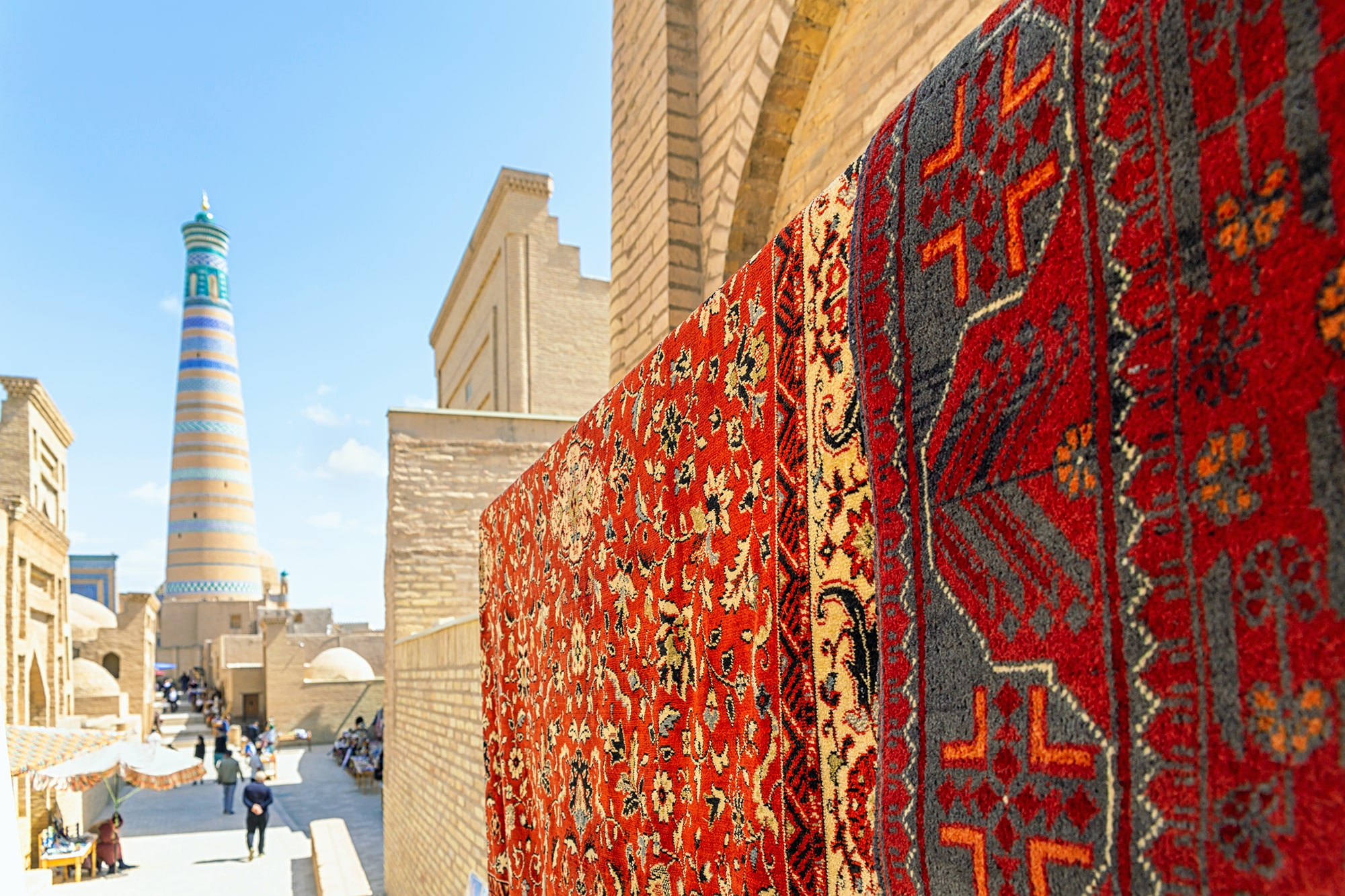
Knots of Culture: Central Asia’s Carpet Weaving Heritage
Central Asia’s rich tradition of carpet weaving reflects the region’s history, culture, and identity. From the ancient nomads of the Pazyryk Valley to the artisans of Kyrgyz yurts and the urban weavers of Samarkand, carpets have long served both practical and symbolic functions. Their materials, techniques, and motifs reflect centuries of interaction between nomadic and […]
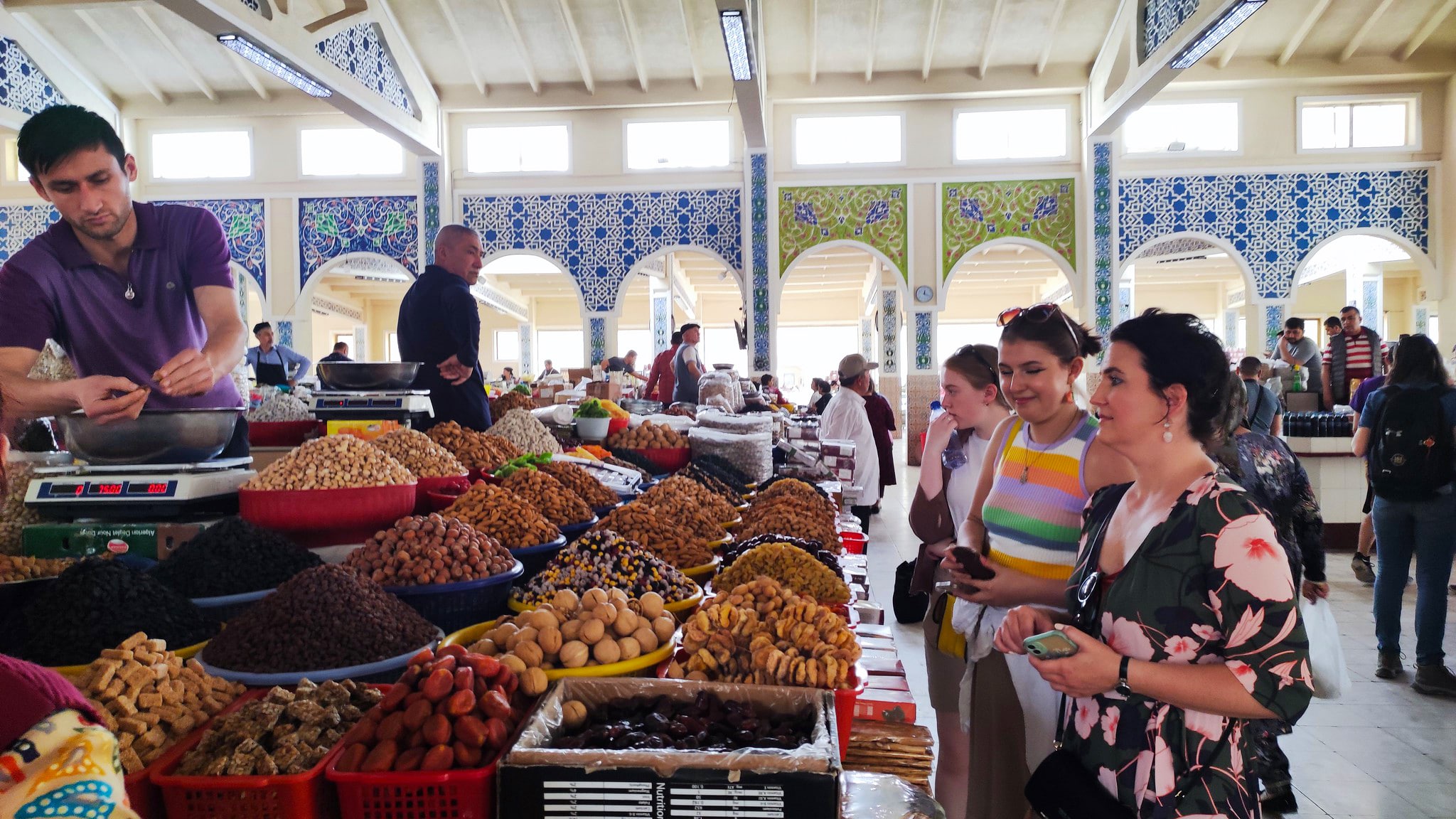
The Talking Uzbek Phrasebook
The Talking Phrasebook Series presents useful phrases and words in side-by-side translation and with audio files specifically geared to help students work on listening skills and pronunciation. Below, you will find several useful phrases and words. To the left is the English and to the far right is the Uzbek translation. Uzbek is currently transitioning […]
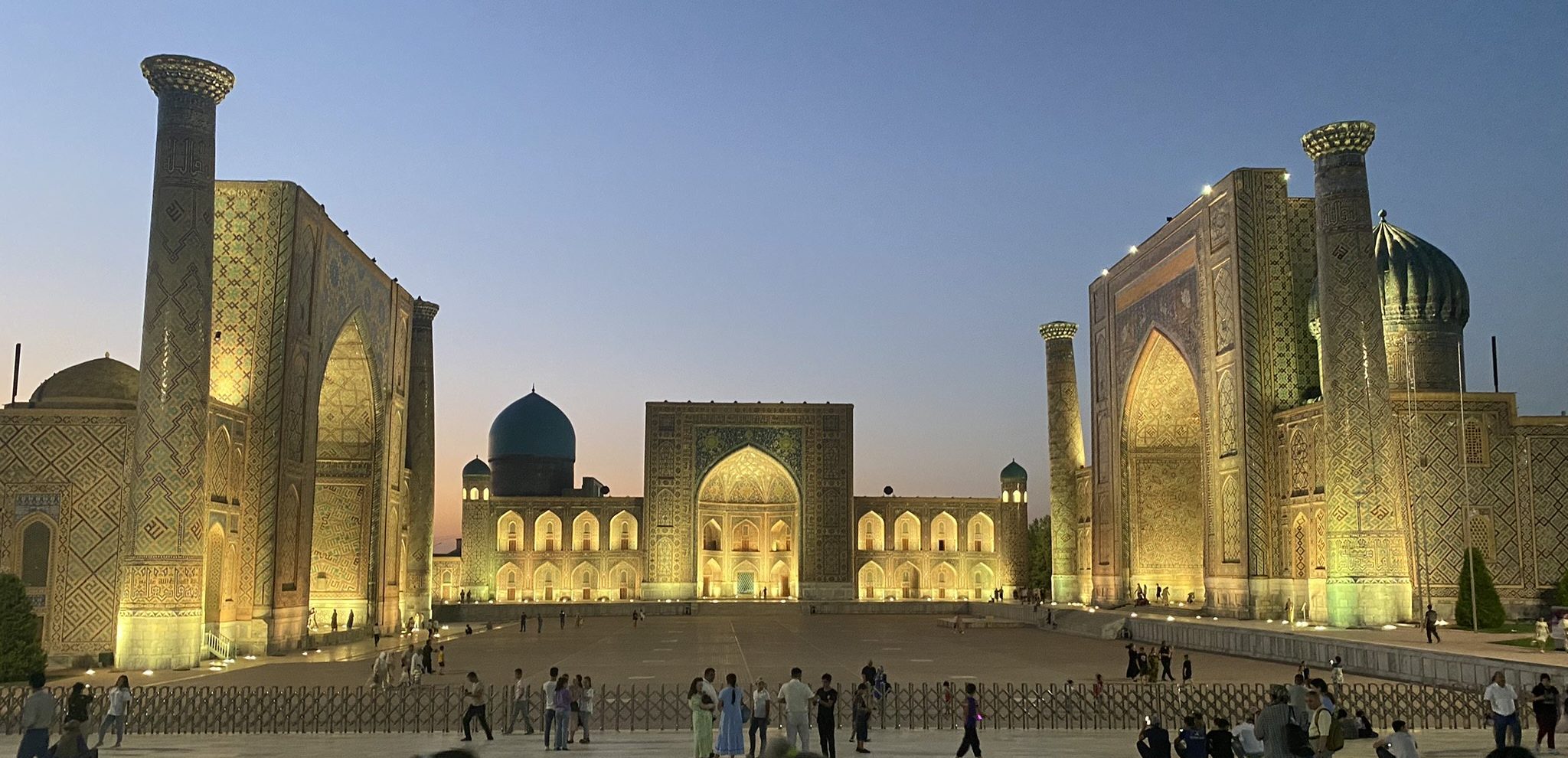
Uzbek Identity: Understanding the Uzbek National Narrative
What created Uzbek national identity? This is a complex question and one that is personal for each Uzbek. This resource will focus on presenting one element of this identity – the Uzbek national narrative. Who are the national heroes and what are the pivotal events that they learned about in school? What are the major […]
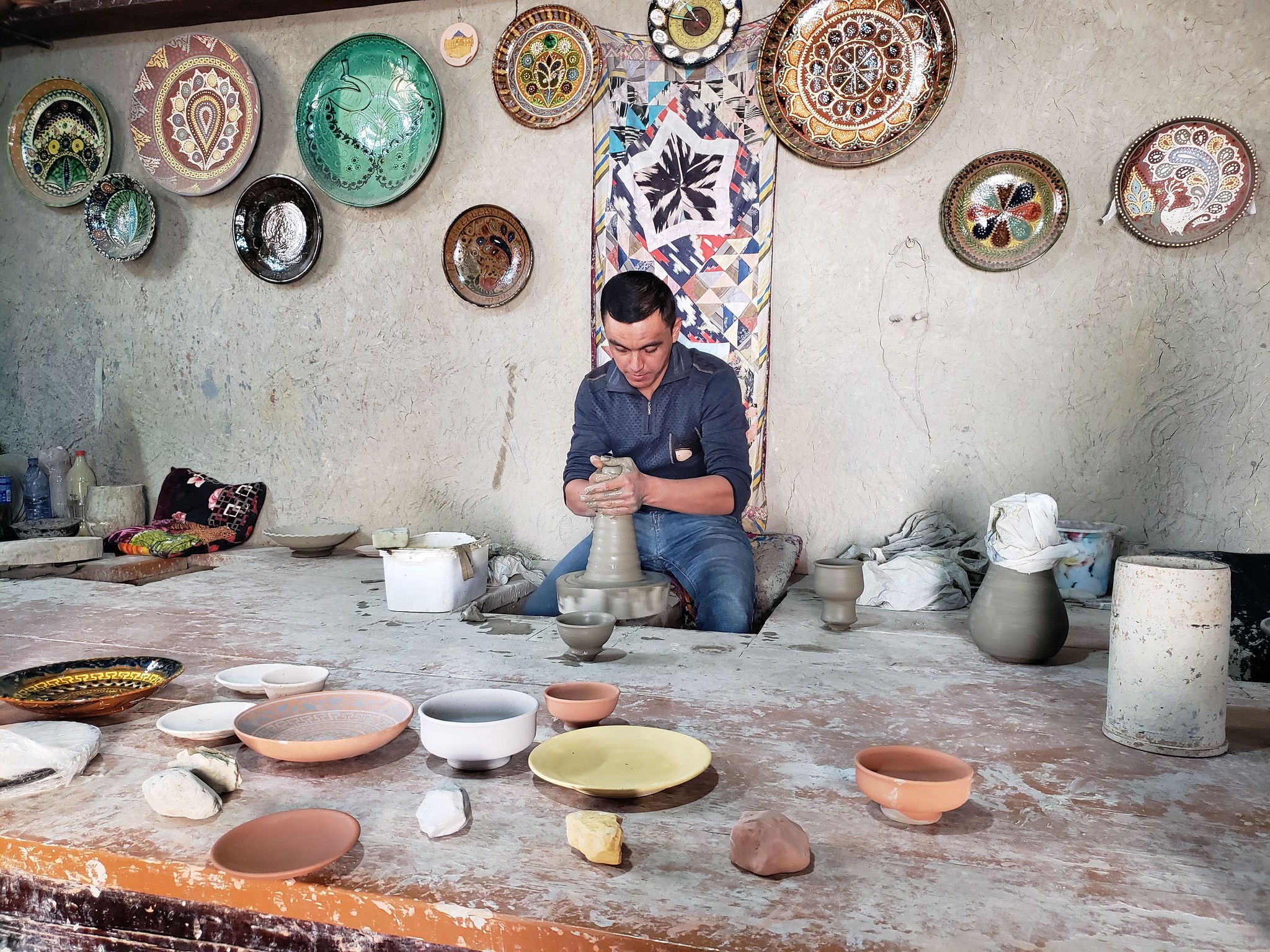
Crafting the Silk Road: Uzbek Ceramics in Ancient and Modern Life
Uzbekistan’s ancient pottery and ceramics offer a window into the deep history and vibrant cultural evolution of Central Asia, connecting the ingenuity of early Silk Road societies to modern-day artistic traditions. The remarkable discoveries unearthed by archaeologists, from Hellenistic-era pottery fragments at the Uzundara Fortress to the intricately glazed ceramics of Rishton and Afrasiyab, reveal […]
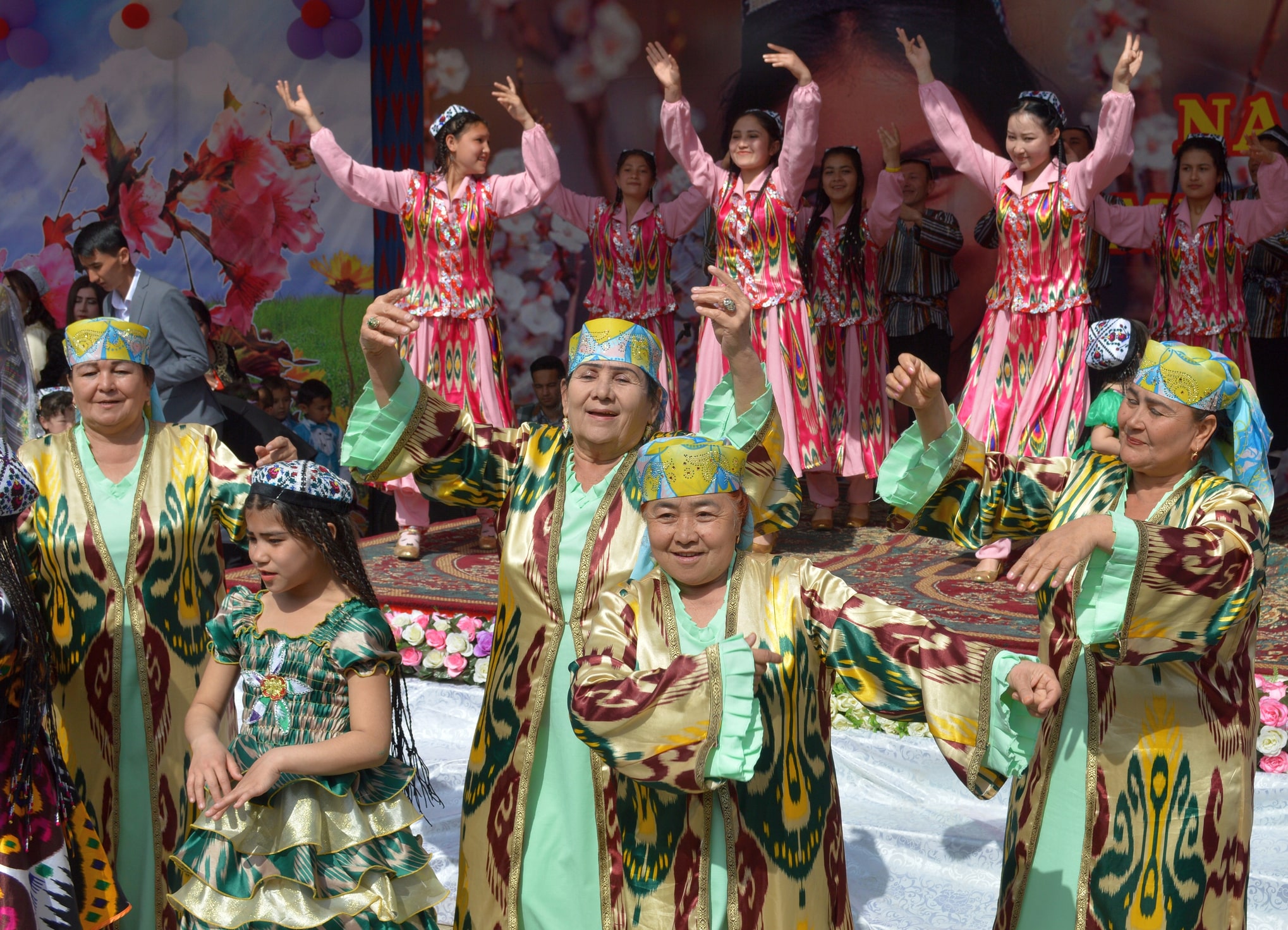
Uzbek Holidays 2025: A Complete Guide
Most of Uzbekistan’s holidays are recognizable from the old Soviet calendar, although they have been moved, refocused, and/or renamed to now celebrate Uzbekistan’s independent, post-1991 history and culture rather than that of the USSR. The major exceptions to this are two major Islamic holidays and the ancient Persian New Year celebrations that have now been […]


